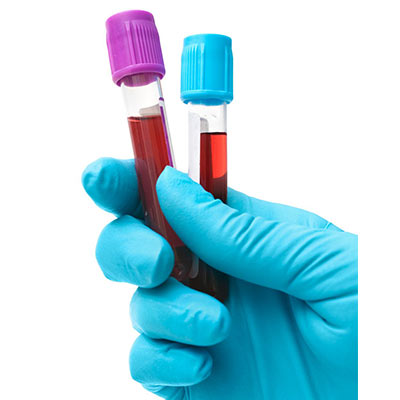Safety!
When you place your pet in our hands, you trust us to provide your pet with the best possible medical care. You expect us to provide you with advice that will allow you to make the best decision for your pet. In order to offer you the peace of mind you deserve, we recommend pre-anesthetic testing prior to placing you pet under anesthesia.
Pre-anesthetic Blood Test Confirm Your Pet is Healthy
As in human medicine, the anesthetics available for anesthetizing our companion pets are extremely safe. As a result, the anesthetic risk is greatly minimized when a “healthy” pet is placed under anesthesia. However, if your pet is not “healthy”, complications can occur both during and after the anesthetic procedure. Therefore, in order to minimize potential risk associated with anesthesia, it is vital for us to know the complete health status of your pet before placing him or her under anesthesia.
Prior to anesthesia, we will obtain a complete history and perform a detailed physical exam on your pet. While a history and physical exam provide us with important information about your pet’s health, it is impossible to understand the complete physiological picture without performing other tests.
Good News Isn’t a Waste of Money!
In most cases, if a pet appears “healthy” based on history and physical exam, an anesthetic procedure will be uneventful. However, unlike humans, pets cannot tell us when they do not feel well. And as a result of an animal’s instinct to protect him or herself, sick pets will often “hide” their illness. Therefore, an animal’s appearance of health may be misleading. For example, a pet can lose up to 75% of kidney function prior to showing any signs of illness. In order to understand your pet’s “overall” health status, it is crucial to derive additional information through testing prior to anesthesia.
If the results of the pre-anesthetic tests are within normal ranges, we can proceed with confidence knowing the anesthetic risk is minimized. On the other hand, if the results are not within the normal ranges, we may alter the anesthetic procedure. In some cases, we may proceed as planned yet provide additional medical support during and after the procedure to ensure your pet’s health. In other cases, the test abnormalities may be significant enough to postpone the procedure in order to monitor and medically treat your pet.
Pet Blood Tests Double as Baselines for Health
In addition to reducing anesthetic risk, testing can also help protect your pet’s future health. These tests provide baseline levels for your pet and become part of his/her medical record for future reference.
Although performing these tests cannot guarantee the absence of complications, it can significantly minimize the risk to your pet and provide you and us with peace of mind.

